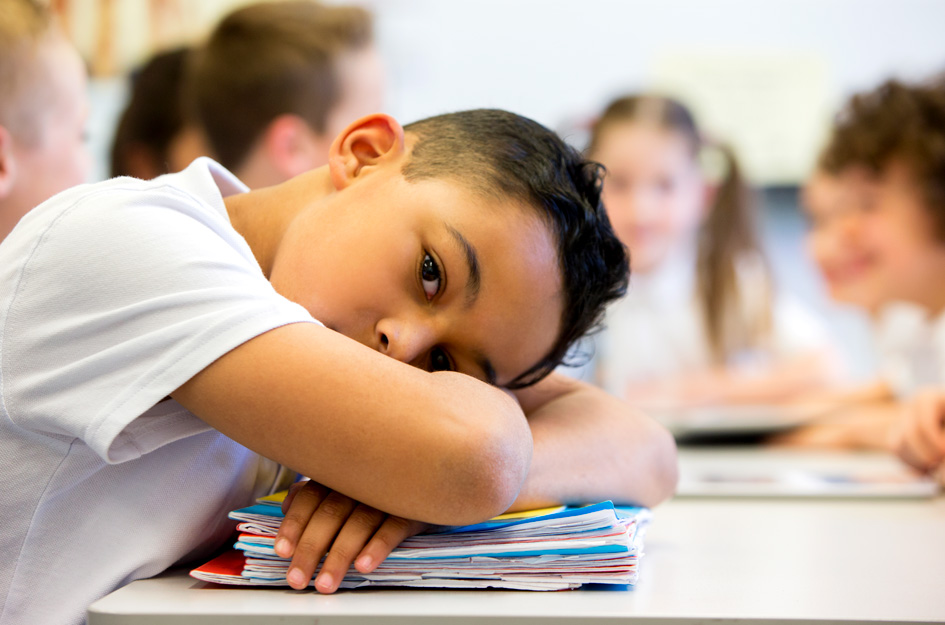

In a cultural and societal shift toward trauma awareness, Boys & Girls Clubs are infusing a trauma-informed approach across everything we do as we work to ensure every young person reaches their full potential.
We are in the midst of a complicated but necessary cultural moment as our society wrestles with the necessity of trauma awareness. And as one of the nation’s largest youth development organizations with roughly 4 million kids looking to us in a typical year, we’re coming to terms with it as well.
Every time societal shifts happen, it’s exciting, exhausting and daunting. Personally, I get inspired to take action – and as a natural problem-solver, meeting the moment is always my first instinct, whether it’s addressing an emergency at the office or helping my 3-year-old twins overcome a new challenge.
So when it comes to trauma and the way it impacts our society and especially our young people, I want to find the move we need to make, and make it now. But shifts like these take a united front and require all of us to consider why this change is so deeply needed.
For generations, trauma has often been suppressed and ignored – it was rare that a parent, teacher or mentor would inquire about a child’s trauma, let alone directly address it. Better to move on, “let the past stay in the past.” We’ve all heard those colloquialisms that aim to minimize our experience, dim our emotions, and ultimately act like it didn’t matter, hurt or mean anything.
Now we recognize those experiences, those traumas, move forward with us and can forever shape our lives. As such, trauma – acknowledging it, respecting it and changing the way we do things because of it – is becoming a critical part of youth development.
Here at Boys & Girls Clubs of America, we’re committed to becoming a trauma-informed organization. If a cultural shift like this seems too large a task for one organization to take on, I will just remind you that Boys & Girls Clubs are a Movement for the moment, whatever the moment may be. And in this cultural moment in our world, becoming a trauma-informed organization and prioritizing racial equity – priorities we’ve championed even further in these past 18 months – are the focuses that will best serve youth today, and for generations to come.
In his book “The Body Keeps the Score,” psychiatrist and trauma researcher Bessel van der Kolk says that “human contact and attunement are the wellspring of physiological self-regulation.” Boys & Girls Clubs are, in essence, creating space for that attunement as additional support outside the home. We do this by offering belonging, compassion, inclusion and a promise to honor our youth. Within the fun activities, the life skills and the learning opportunities available at every Club across the country, there is care, empathy and acceptance for who our youth are and their unique life experiences that they bring into the Club.
After all, our incredible, bright, deserving Club kids come from a diverse array of backgrounds; they cannot and should not be generalized or viewed as a monolith. Conditions that are rife across the nation deeply affect the children and communities we serve – Poverty. Food insecurity. Racism. Systemic inequities. Let alone the general hardships of life, including loss of loved ones and struggles with mental health.
All these things cause trauma, prevalent and wide-reaching trauma. And if any of our amazing kids carry these issues into the Club with them, it is both our privilege and our responsibility to know what their needs are and to meet them to the best of our abilities.
As Boys & Girls Clubs, we’re mission-driven to help youth reach their full potential. And to reach for something greater, youth must have a stable foundation within themselves. That starts with addressing trauma and building understanding and acceptance.
I’m honored to share that this work, not an initiative but rather a lens that will filter across every single thing we do, will be lead by Dr. Jennifer Bateman, our new Senior Vice President of Youth Development. Dr. Bateman has an M.Ed. from Harvard and a Ph.D. in Psychology and Human Development from University of Pennsylvania, as well as 14 years of experience in trauma-informed work. With her drive to promote institutional wellness and help our Clubs nurture resilient, whole-hearted youth, we are excited to further our trauma-informed work and for our Clubs to continue this journey of care and connectedness to today’s young people.
I watch the teams working towards this shared goal, both in our Clubs and at our national office, and I feel humility and reverence for the work we’re doing. This is the problem to solve. This is the change we want to see. This is the moment to meet.
Support Boys & Girls Clubs of America in building trauma-informed experiences for young people. Learn how you can help ensure today’s youth and the generations to come have the guidance and understanding to address trauma and be resilient.
Ensuring child safety is fundamental to the mission of Boys & Girls Clubs. Access our awareness and prevention parent safety resources here.
We use cookies to enhance your experience. Learn More.
Boys & Girls Clubs of America uses cookies to give you the best experience on our website. Read about cookies in our privacy policy. By closing this message, you consent to our use of cookies on this device in accordance with our policy unless you have disabled them.